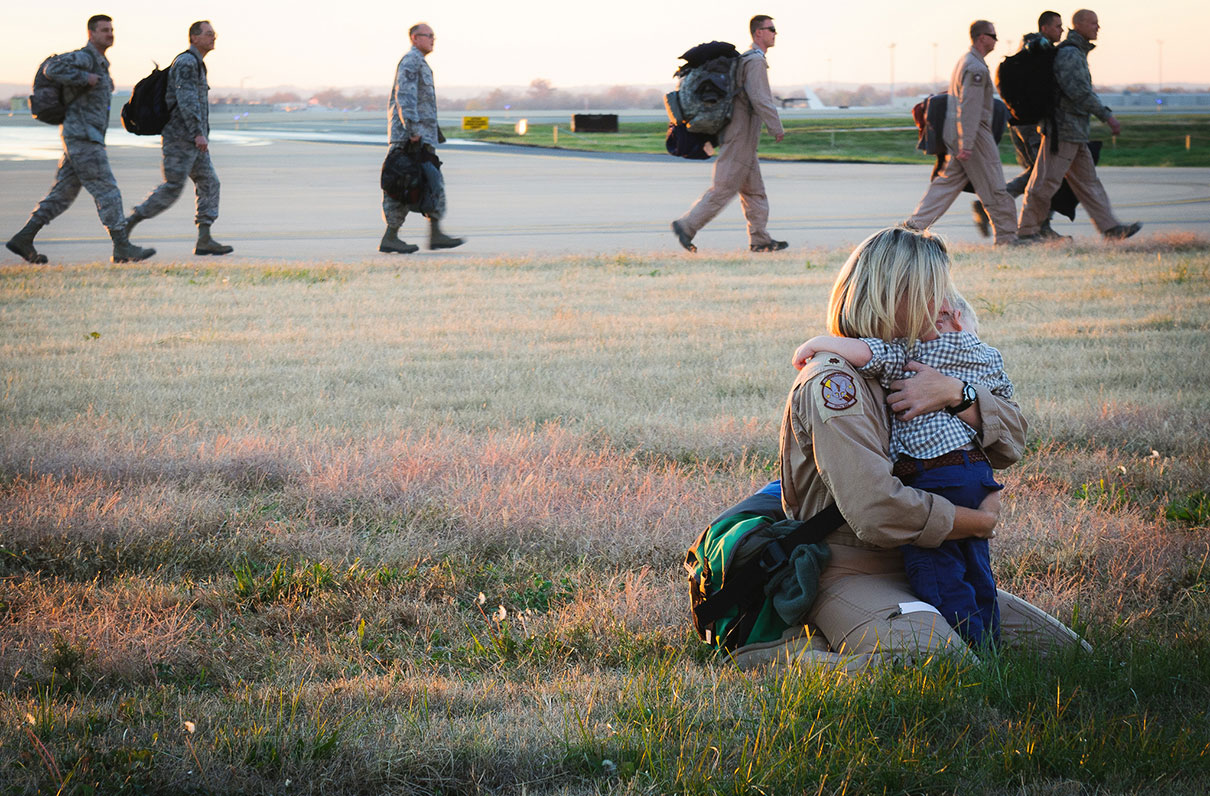National Guard and Reserve units are experiencing a high operational tempo, at home and abroad, and this toll is felt not only by the service members but also their support networks.
Sadly, very little research exists today on the well-being of these Guard and Reserve families. Most studies place the focus on active duty families. And when Guard and reserve families are part of the sample, it is often at a very small percentage.
It was evident at the Military Child Education Coalition National Training Seminar last month that reserve component families and their children have unique experiences and issues, such as being identified as a military student while their parent is activated. However, because of a lack of data, it's hard to determine what the best actions moving forward are to soften the negative impacts that affect Guard and Reserve families.
Empirical data is crucial when proposing legislation to help this population of military families. Lawmakers want to see proof that there is a need for change and, without data, the proof is only anecdotal. MOAA calls on Congress to conduct an assessment and report on the wellbeing of Guard and Reserve families.
No matter if the servicemember is deployed 2,000 miles away or 200 miles away, their families feel the logistical, financial, and emotional impact of their absence.
Logistical Impact
Being activated for Guard or Reserve duty can be a logistical nightmare. When on active duty orders, servicemember benefits change such as where they receive healthcare and price of their medical costshares. Switching benefits can be confusing to understand especially when preparing to leave your family for a deployment or state mission.
Additionally, Guard and Reserve servicemembers do not have the same access to childcare benefits active duty personnel have. This makes it difficult for a Guard or Reserve family to transition from a two- parent household to essentially a single-parent household. When the servicemember is gone on duty, they must reassess childcare plans which sometimes involves their spouse leaving their job or cutting back hours at work.
Financial Impact
Recent reports suggest Guardsmen, specifically activated for state mission in Hawaii are experiencing a delay in pay. Due to the process of “after the fact pay system”, where Guard and Reserve members are paid only after the service, many are going weeks without pay which has a huge impact on their family budget and ability to pay bills. Additionally, those eligible for higher housing allowances are experiencing delays in receiving this extra compensation due to administrative inefficiencies.
In addition to pay delays, Guard and Reserve families may have additional expenses related to some of the logistical issues mentioned above such as childcare.
Emotional Impact
Whether the servicemember is active duty, National Guard, or Reserve, being deployed overseas or on state active duty is extremely stressful on the family. Studies, such as Rand's 2016 study on impact of deployments, suggest that although deployments don't have a significant impact on long term psychological and behavior health of families, the short term impact on families can definitely be felt socially and emotionally. With servicemembers facing dangers from combat zones to wildfires, it is no wonder stress levels for families during this time increase.
MOAA continues to identify and address issues surrounding the Guard and Reserve population. We continue to be an active voice, uplifting the concerns of National Guard and Reserve families through support of efforts to:
- Collect more data on Guard and Reserve families
- Encourage more states to use Military Student Identifiers for Guard and Reserve children in schools and disaggregate data from their active duty student counterparts to address more specific issues
- Ensure employers are prepared for employing a Guardsman/Reservists so servicemembers can keep their job after extended duty periods
- Include Guard and Reserve language in appropriate legislation focused on active duty, but could benefit all components
- Educate Guard and Reserve families on their military benefits and how they change based on activation status
- Expand access to military benefits to Guard and Reserve families
